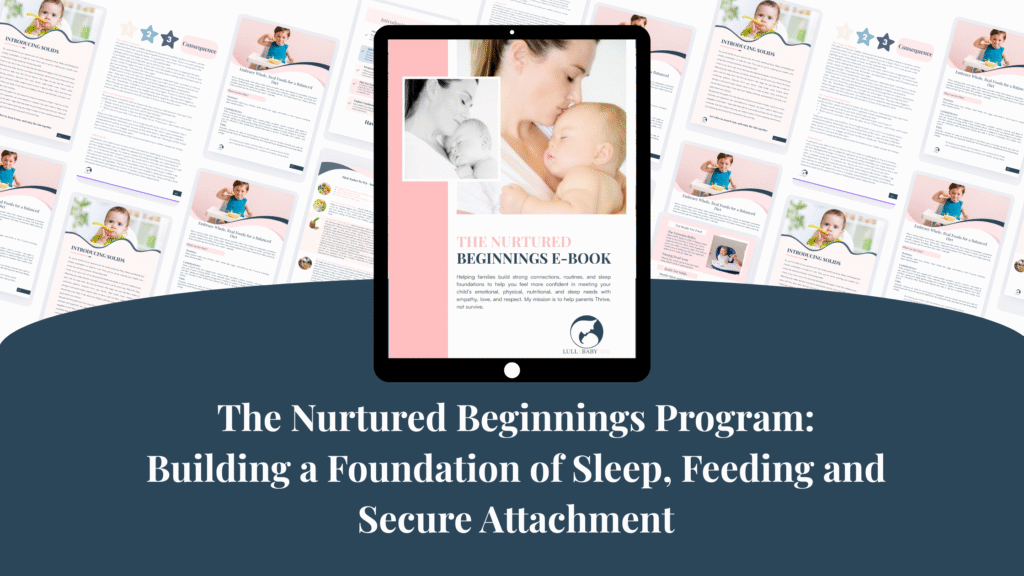
If you’re reading this, chances are your little one is around 3-5 months old, and you’ve either heard whispers about—or are living through—the 4-month sleep regression. Here’s the truth: it’s not a regression at all. It’s a progression. Your baby’s sleep is maturing in a big way.
Around four months, your baby’s sleep matures significantly. Their Circadian Rhythm—their natural sleep-wake cycle—begins shifting into a more adult-like pattern. Sleep cycles now distinctly alternate between REM (rapid eye movement) and Non-REM sleep, which means your baby naturally wakes between cycles, just like adults.
You might notice a pattern: one longer sleep block at bedtime, followed by shorter blocks through the night, often around two hours each. Early morning wakings become more frequent. But why does this happen?

Imagine this: You fall asleep in your cozy bed, but wake up later on the dining room floor. Confusing and unsettling, right? You wouldn’t just roll over and drift off—you’d wake fully, move back to bed, and feel anxious about it happening again.
That’s exactly how your baby feels if they’re put down asleep after feeding, rocking, or another external aid. When they wake briefly between sleep cycles, they notice their environment has changed. They’re not in your warm arms anymore—they’re in a cool, unfamiliar cot. So, they cry out for you to return and recreate their original sleep environment.
This cycle of waking and resettling becomes exhausting—for you and your baby. Your baby isn’t waking from hunger; they’re waking because their sleep environment changed. This is why self-settling is key from this age onwards.
If you’ve been using external aids like feeding or rocking your baby fully to sleep, now is the time to gently teach your baby to settle in their cot. Remember, how your baby falls asleep at bedtime is exactly how they’ll expect to fall back asleep overnight.

If you’re already experiencing frequent wake-ups, the Lullababy SOS programs will help you identify what’s working and not working for you and your baby and show you how to make little changes that can shift associations and gently guides your baby toward independent sleep without traditional sleep training, preserving your emotional bond while supporting healthier sleep habits.

The Nurtured Beginnings Program helps prevent frequent night wakings by creating positive associations and familiar flows throughout the day, that give both you and your child predictability in each of these elements. You baby learns what you do most consistently and so consistently creating positive associations around predictable repeatable activities and teaching gentle, attachment-based settling techniques from birth. This program emphasizes:
By guiding your baby toward self-settling early on, The Nurtured Beginnings Program helps your baby naturally link sleep cycles independently, significantly reducing frequent nightly wake-ups.
Remember, this phase is a natural step toward better sleep. With patience and gentle guidance, restful nights will return.

You deserve a smoother, calmer routine—and now’s the perfect time to grab the tools that help.
From settling support to sleep saviours, we’re giving you up to 50% off some of our most-loved essentials